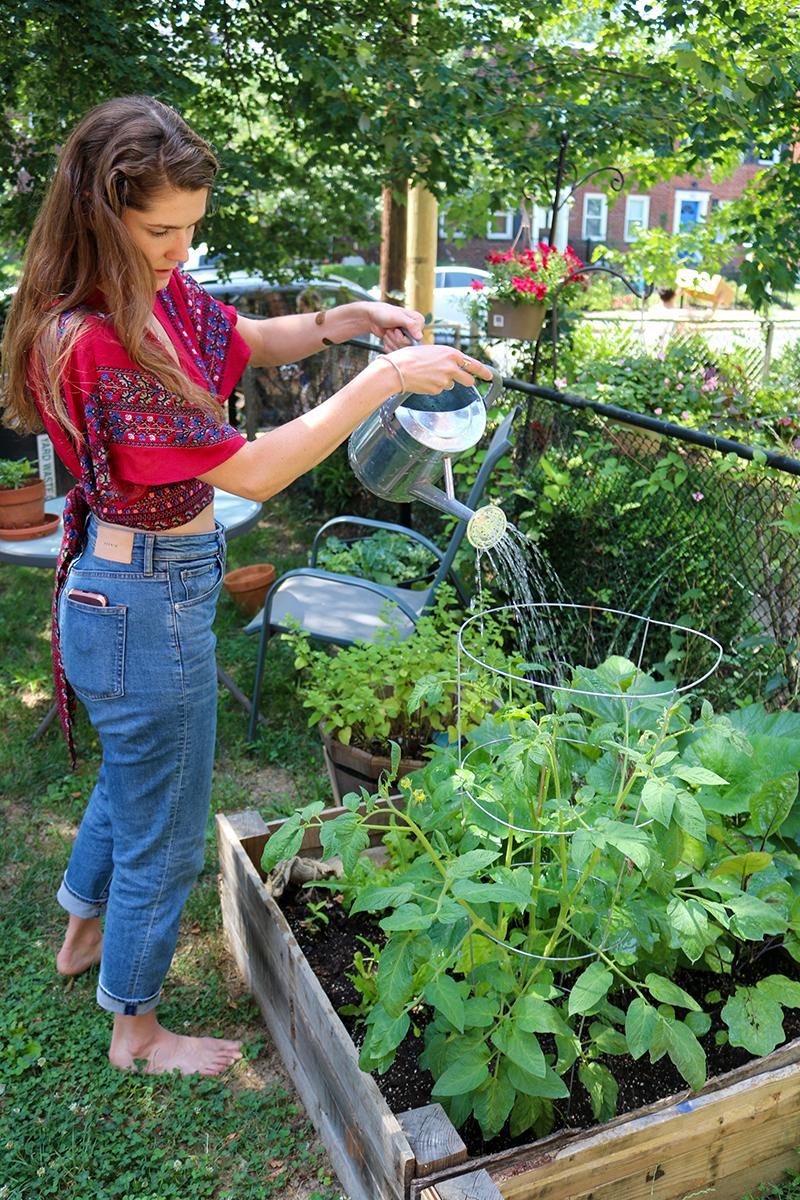Last summer, I was sitting and chatting with Regan McLaughlin when she pulled a jar full of trash out of her purse and set it on the table. Without skipping a beat, she opened the jar, stuffed in a folded receipt, and put it back in her bag. I had only known her for about two months, but I knew that that wasn’t… normal. That was the first time I was exposed to the Zero Waste movement, and I found it fascinating. Now, a year later, Regan is doing her second Zero Waste Month, and she’s cut her jar size in half. I sat down with her to talk about zero waste, living a more eco-conscious lifestyle, and of course, plastic.
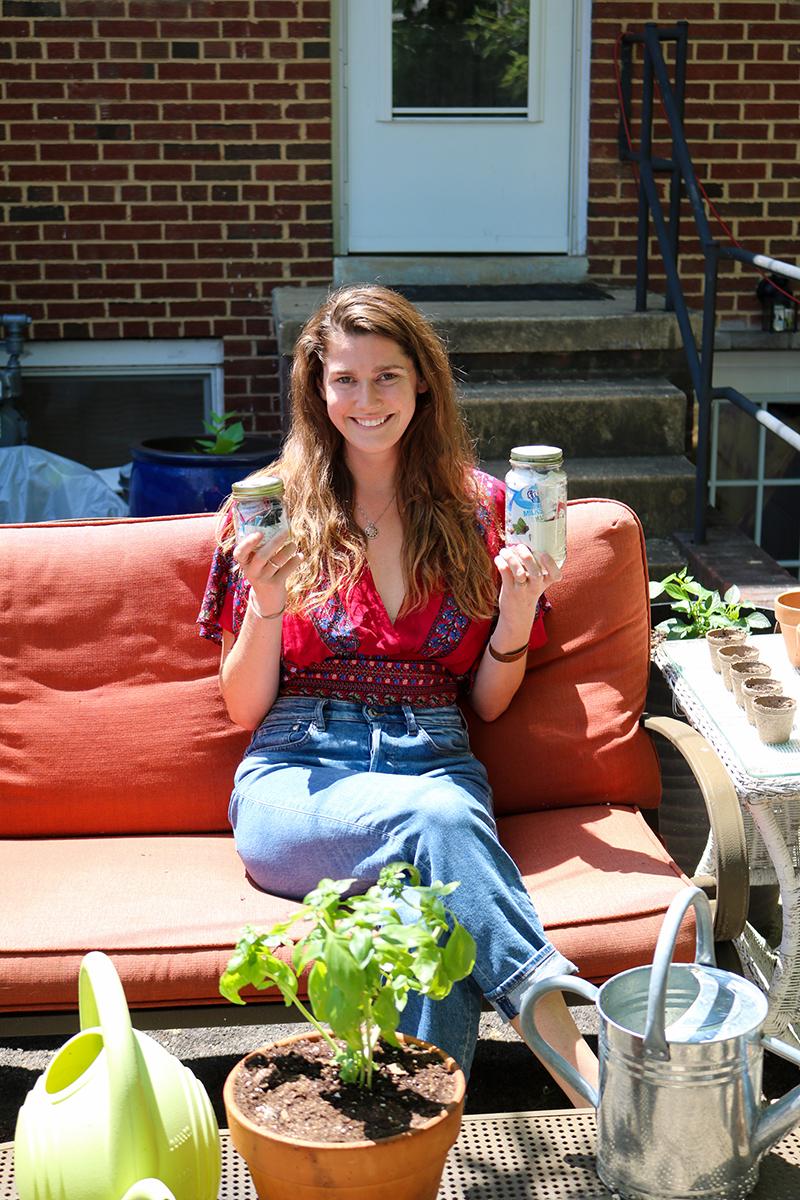
Below is my interview with Regan McLaughlin, environmental events consultant and blogger at AlteredEco.org:
What is a Zero Waste Month?
RM: Zero Waste Month is a month where you collect every piece of waste you produce. Some collect it, some just write it down, some take photos on their phone. The idea behind it is that by doing this, you can physically see what you’re leaving behind. You think about what kind of legacy you leave in your life, and 4,000+ tampons (I did the math) is not what I want my legacy to be. I personally did my first Zero Waste Month June of 2018. I did my research on bulk shopping, I did my own trash audit, and I blogged about it.
What makes you passionate about trying to live a more sustainable life?
RM: Having a choice mattered to me. I felt like the highest indicator on if something would exist in my life was on how convenient it was. Proximity mattered more than me making a choice. When you live with less, you’re more connected to the things you live with.
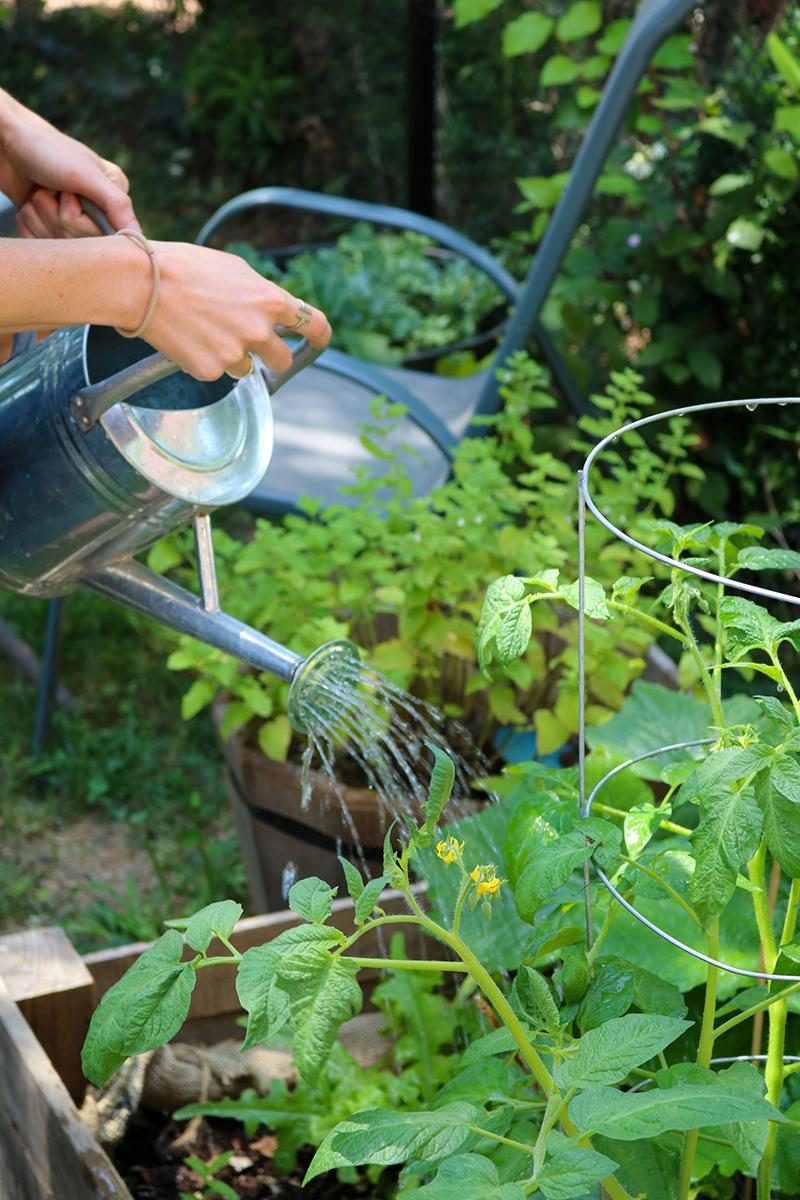
When did you start making that change?
RM: It started with my canvasing job two years ago. Canvasing made me connected to my community, and put in perspective how one person doing something can build momentum to bring about change. It really personified that avalanche way of living life. One of the best things I learned was that if you can’t change your mind you cant change anything, so I started to try to change my mind.
What were the biggest takeaways from your first Zero Waste Month?
RM: I have three!
- Always be prepared. Being stuck in a situation where you don’t have your napkin is terrible, just trust me. You don’t want to have to add a dirty paper napkin to your trash jar.
- Be proactive. You have agency here- the world is the way it is because we allow it to be, not because it makes more sense. For example, include zero waste in your order. When you’re at the bar, make sure “no straw” is part of your order!
- Messaging is important. I don’t want people to think I’m talking down to them when what I’m really asking is for them to do me a favor- like to put my meat in tupperware instead of wrapped in plastic at the deli. It’s so important to talk about it. It helped bring other people into the conversation. The more you share about how hard it is or how easy it is, the more genuine it seems. Zero waste isn’t succulents and copper scissors, it’s that sometimes you dry your trash. And you need to talk about that!
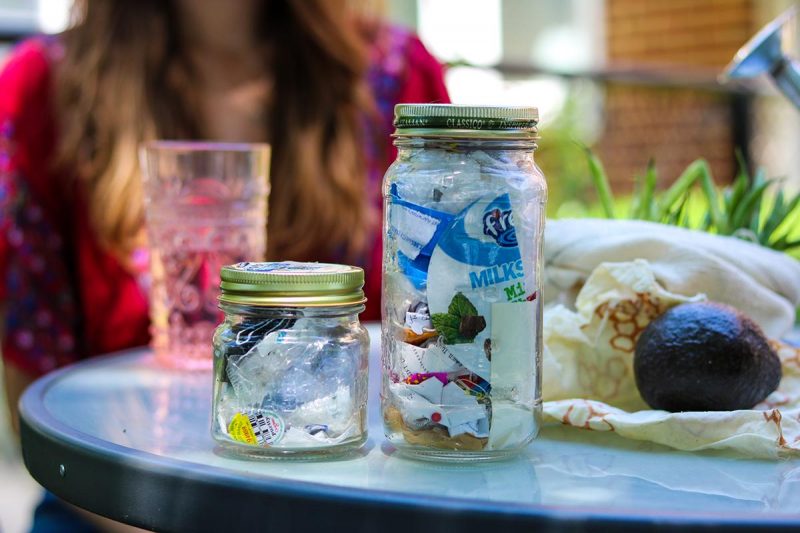
Why do you think some people struggle with being more eco-conscious?
You have to be internally motivated. The systems to support zero waste aren’t in place yet, so you have to act outside of them. Also, eco shaming is real! You might be doing the right thing, but socially speaking, you don’t want to shame other people for not being that way. Everyone’s Zero Waste Month will look different, and some people struggle with that.
What about the argument that it’s more expensive?
RM: One of the best pieces of advice anyone ever told me was to use what you have. Don’t throw away your perfectly good sponge and buy a compostable one before you need to. It’s hard to make the transition-I’m a year in and I’m just now not throwing my money away on fancy bamboo utensils. I think it’s as expensive as you want it to be.

We’ve talked about lifestyle shaming, but let’s dive deeper.
RM: The best way to not shame people is to make it about them, and not about zero waste. The goal of zero waste looks different for each person. Meet them where they are and don’t force them to be where you want them to be. Also, I personally grapple with why I’m doing what I’m doing and for whom. When I started, it was so personal to me. I was just trying to challenge myself and get to know myself better. But now I don’t go anywhere without people asking me about my zero waste journey. It’s a huge part of my identity, which is new. I have to remind myself why this is important to me and let go of the expectations other people have placed on me. This is about me living a more mindful life.
What are some low-lift changes people can do right now?
RM: There are three main categories here: purchasing habits, physical changes, and social behavior changes. Purchasing habits mean being more conscious about what you buy (and what it comes in). Physical changes are things like bringing your reusable cups, straws, tupperwear and napkins. But let’s also focus on things people can stop doing, as well as start doing. You’ve heard of “reduce, reuse, recycle?” Zero wasters also really focus on “refuse.” Refuse that straw, or that unnecessary bag, or that receipt! Learning how to say no is tough, but stop taking freebies! Changing this societal behavior will have a big impact.
What are some of your favorite brands, stores or concepts?
RM: I have a ton, so lets bullet them:
- Late July
- MOM’s Organic Market
- Whole Foods
- Upcycle Creative Reuse Center– Upcycle in Old Town Alexandria, VA takes EVERYTHING. If you’re a teacher or babysitter, you need to know about them.
- Community Forklift
- Your local farmers market!
- TerraCycle
- Patagonia
- ThreadUp
- Buy Nothing groups on Facebook
What’s a misconception that you want to discuss?
RM: Plastic is not the enemy. I couldn’t have done zero waste without plastic. This is not a war on plastics, this is a war on single use plastics. It’s more a war on the consumer than on the producer. We have a lot of power as consumers, and we should wield it more.
Do you think everyone should do a Zero Waste Month?
RM: I think that everyone should do it. You don’t have to do a month and you don’t have to keep it in a jar. Even just a weekend. It’s eye opening to not be passive about the waste you create.
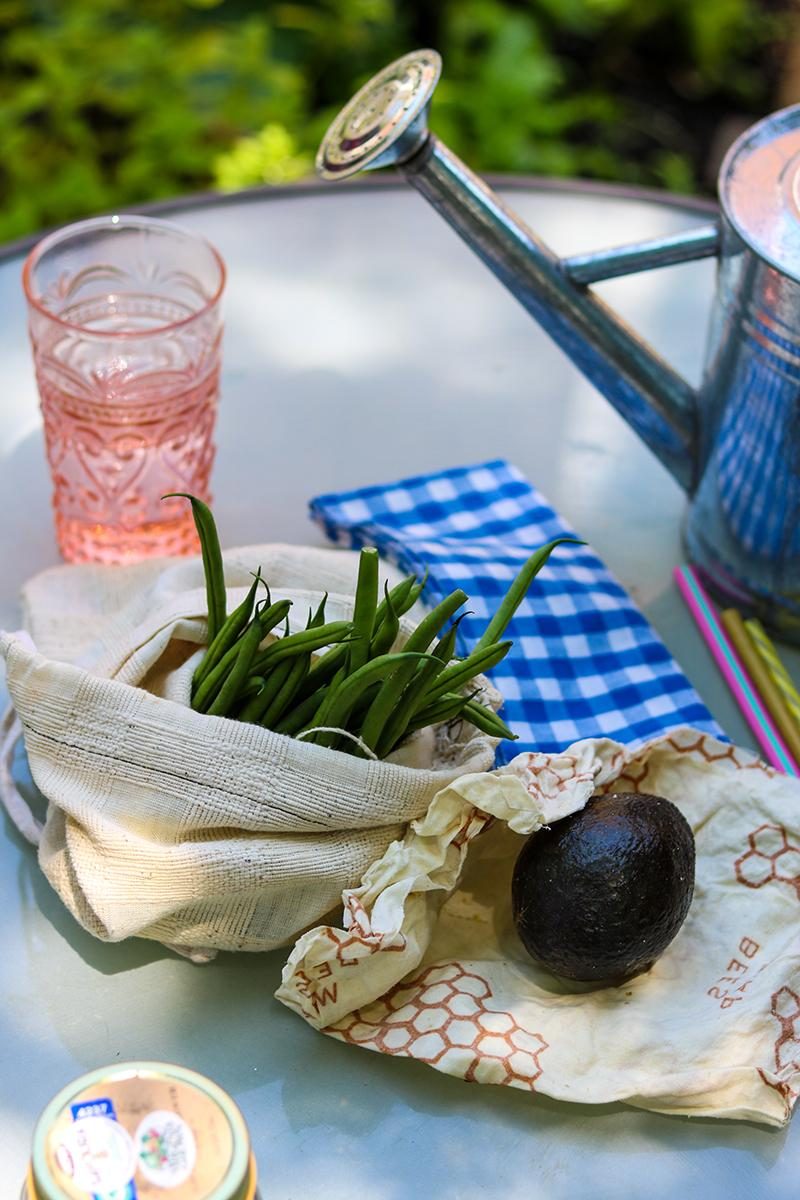
I want to say a huge thank you to Regan for sitting down with me to talk zero waste, and if you want to read more about her suggestions and experience with zero waste, I highly recommend her blog AlteredEco.org. Please leave any questions down in the comment box!


